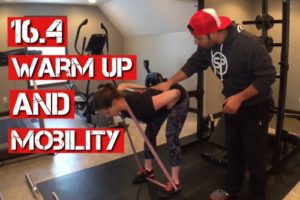
At Sports Performance, we talk a lot about sleep, recovery, and nutrition as crucial elements in an athlete’s rehabilitation and performance strategy. Most of us know and can easily monitor/adjust the numbers recommended for sleep (8-9 hours), and we are also able to easily quantify our training, whether it’s hours spent in the gym, weight lifted, or miles ran. But how many of us are tracking one of the most important factors in performance — nutrition? A solid nutritional foundation can help athletes sustain a high level of training and support a faster return to training following injury.
Check out below to see how nutritional modifications can help you recover from injury!
1. Keep your food intake as normal as possible.
When we are injured and not training as hard (which there are many ways around), it’s easy to think that we should dramatically decrease our energy (food) intake. However, healing from injuries can take a lot of energy. Depending on the severity of injury, your body could need anywhere from 15-50% more energy, so it might be better to keep your food intake close to the same as before the injury. Unfortunately, if your food intake is less than your energy burned (called negative energy balance) while you’re injured, you will likely delay your injury healing and accelerate your loss of muscle mass in both the affected muscles and other muscles of your body.
2. Keep your protein high, but fats low!
A high protein intake will not only help your body heal and reconstruct its injured tissues, but it will also create an environment where your other muscles have the best chance of maintaining their size. Shoot for an intake of ~0.8 g/pound of bodyweight, which is a relatively high number, but is healthy for people with no kidney problem. This protein should be spaced throughout the day as much as possible to keep protein levels all day, especially in periods of inactivity. Recent evidence has also suggested that an excess of fats might decrease your body’s muscle building response to proteins, so while it might be tempting to go low carb and high fat while you’re healing, it might be better to avoid large increases in your fat consumption.
3. Additional essential amino acid (EAA) supplementation may be helpful.
Essential amino acids are proteins that are not made by your body, and must be consumed through food. These building blocks are responsible for your body’s muscle building response, and thus keeping them high might help decrease the amount of muscle loss during disuse. Essential amino acids have been found to be especially useful in slowing down loss in muscle mass and strength during joint immobilization, so if you have a cast on, try out some aminos!
Other nutritional considerations are also important.
While they haven’t been as deeply researched with respect to injury healing, many other nutrients are likely important for recovering from injury. These include creatine, omega-3 fatty acids, and creatine. Specifically, any deficiencies in these nutrients would likely delay healing and increase recovery time. Most of these come from a well balanced diet that is full of fruits, vegetables, seeds, meats, and whole grains. If you have a severe injury, use the extra time to take care of your body’s nutrition, and your body will reward you with healing.
Bottom Line:
It’s easy to support injuries with rest, ice (when to ice? [hyperlink]), and mobility tools, but it’s equally, if not more, important to support injuries from a nutritional standpoint. The habits that you develop while nursing an injury will also likely improve your performance when you’re fully back to your desired activity.
Tipton KD Nutritional Support for Exercise-Induced Injuries Sports Med. 2015; 45: 93–104.
Published online 2015 Nov 9. doi: 10.1007/s40279-015-0398-4
As always, we hope this helps! If you have any questions or if you would like to read about certain topics, feel free to send us an email at TeamSP@SportsPerformancePT.com.
-Dr. Marissa

STAY CONNECTED
Instagram: CLICK HERE
Facebook: CLICK HERE
YouTube: CLICK HERE
Podcast: CLICK HERE
TUNE IN TO OUR PODCAST













